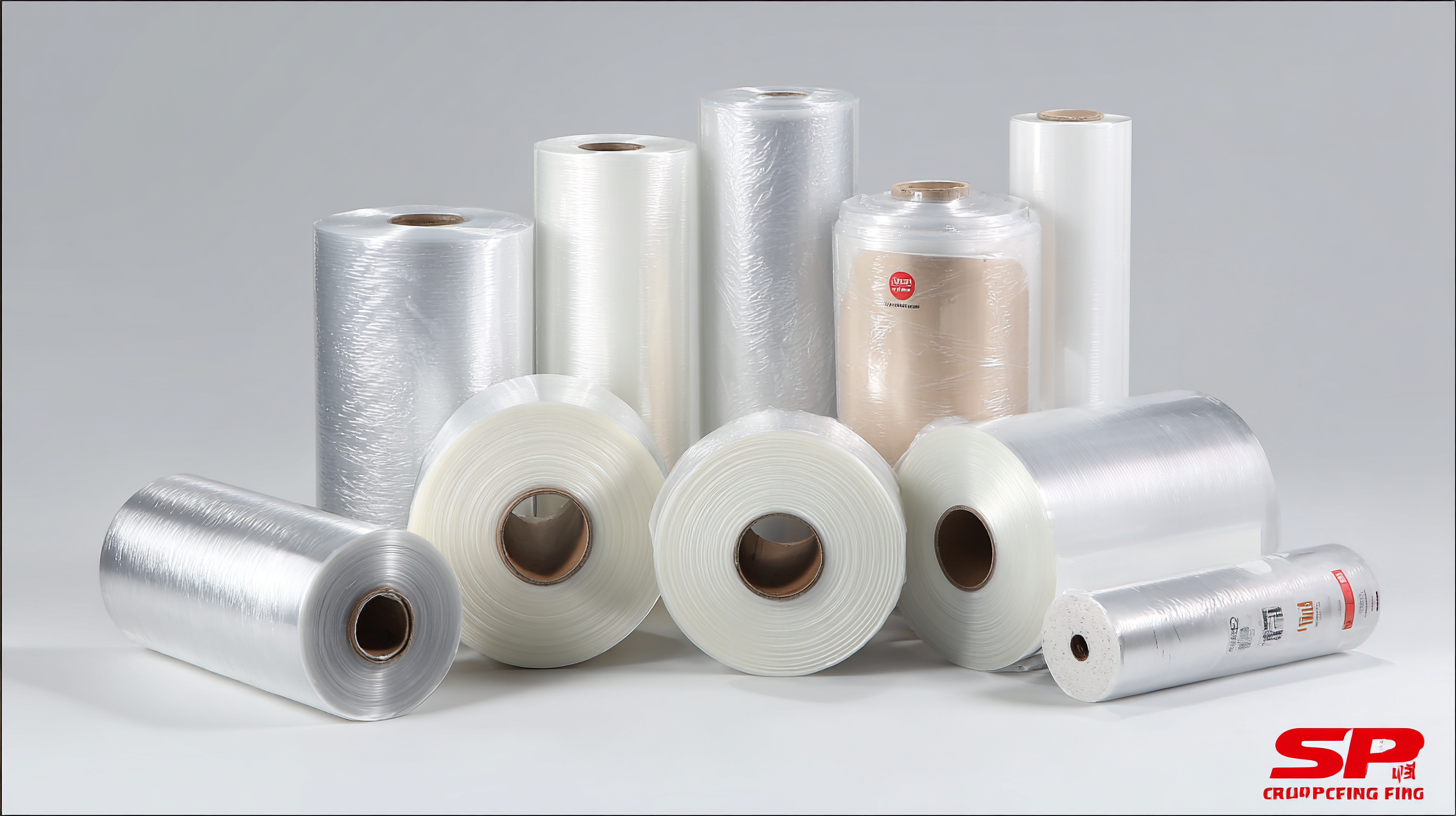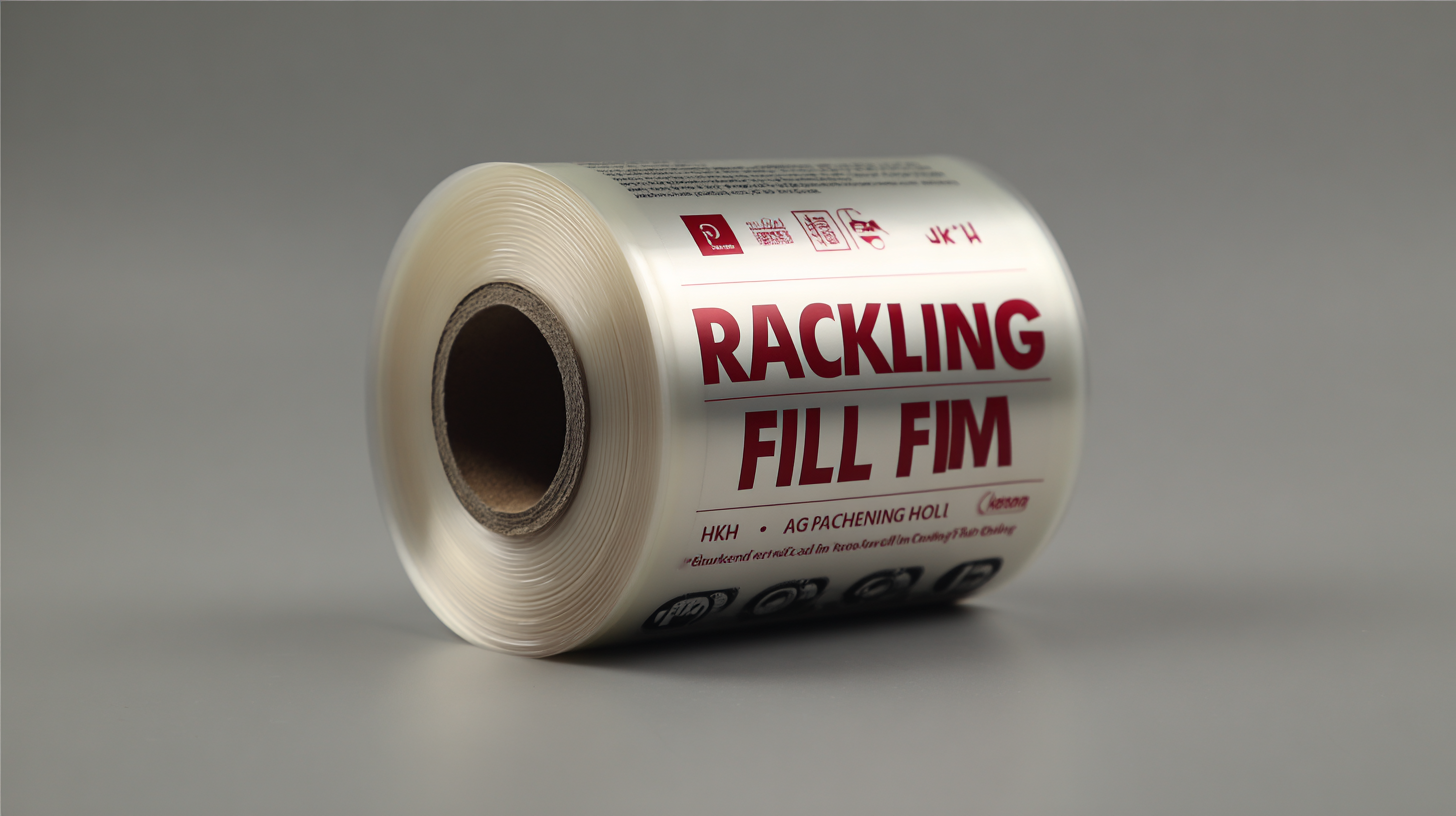- Phone:+86 15218629499
- Phone: +86 15766990063
- E-mail: Yzprinting01@163.com
In recent years, the global demand for high-quality Packaging Roll Film has surged, driven by the expanding e-commerce market and increasing consumer expectations for product safety and sustainability. According to a report by MarketsandMarkets, the packaging market is projected to reach USD 500 billion by 2027, with flexible packaging materials, including roll films, witnessing significant growth. This rising trend emphasizes the necessity for manufacturers to prioritize quality and reliability in their products. China has emerged as a leading player in this industry, renowned for its innovative solutions and cost-effective production methods. However, with numerous suppliers in the market, it is essential to have a comprehensive checklist to evaluate and select the most competent manufacturers who can consistently deliver unparalleled packaging roll films that meet both international standards and consumer needs.

In the dynamic landscape of packaging roll film production in China, maintaining consistent quality remains a pressing challenge for manufacturers. Recent reports indicate that a significant 30% of packaging film products may not meet international quality standards, leading to increased scrutiny from global buyers. Common issues include variations in material composition, inadequate sealing strength, and subpar resistance to moisture and oxygen. These factors not only compromise the integrity of the packaged product but can also damage brand reputation in a highly competitive market.
As China aims for dominance in various manufacturing sectors, including aerospace with its development of advanced engine technology, the packaging industry must also prioritize quality enhancement. Investing in quality assurance processes and sourcing high-grade raw materials can mitigate common defects. With global demand for efficient and durable packaging solutions rising steadily, addressing these quality issues is essential. Reports show that up to 60% of businesses are willing to pay a premium for improved packaging quality, highlighting a lucrative opportunity for manufacturers dedicated to delivering superior products. Ensuring unwavering quality in packaging roll films may very well secure China’s position as the premier choice for buyers around the world.
| Issue | Description | Frequency (%) | Potential Causes | Recommended Solutions |
|---|---|---|---|---|
| Thickness Variation | Inconsistent thickness across the roll film | 15% | Machine calibration issues, Material inconsistencies | Regular calibration checks, Use of quality materials |
| Adhesion Problems | Poor adhesion during application | 10% | Environmental factors, Incorrect application | Controlled environment, Staff training |
| Color Consistency | Variations in color across production batches | 12% | Ink quality, Mixing issues | Standardized mixing procedures, Quality control |
| Surface Imperfections | Bubbles, scratches, or contaminants on the film | 8% | Poor handling, Inadequate cleaning | Improved handling procedures, Regular cleaning |
| Roll Core Damage | Damage to the core of the roll | 5% | Transport issues, Poor storage | Careful handling, Proper packaging |
The performance of packaging roll film is significantly influenced by the materials used in its production. According to a report by Smithers Pira, the global flexible packaging market is predicted to reach $248 billion by 2024, underscoring the importance of selecting high-quality materials that ensure durability and efficiency. Various polyethylene (PE) and polypropylene (PP) blends are favored for their moisture barrier properties, while innovations in biodegradable options are gaining traction to meet sustainability goals without compromising product integrity.
Tip: When choosing packaging roll film, consider the specific requirements of your product. Films with higher thickness often provide better barrier properties, while multi-layered structures can enhance strength and preserve freshness. Additionally, always evaluate the film’s compatibility with printing processes, as it can impact branding and consumer appeal.
Another key factor is the environmental impact of the chosen materials. A 2020 report from The Freedonia Group stated that eco-friendly packaging options are expected to grow at a rate of 5.1% annually, reflecting consumer demand for sustainable products. Selecting films that are recyclable or made from recycled materials not only improves your brand’s reputation but can also align with regulations aimed at reducing plastic waste.
Tip: Stay updated on industry trends and regulatory changes regarding packaging materials. This proactive approach can give your business a competitive edge while ensuring compliance with environmental standards.

When it comes to packaging solutions, companies are often caught between the dilemma of cost versus quality. High-quality packaging roll films manufactured in China have emerged as a premier choice for businesses seeking value without compromising on durability and aesthetics. The key to unlocking the cost-benefit ratio lies in understanding the long-term advantages that come with investing in superior materials. While the initial investment may seem higher, the enhanced protection, extended shelf life, and reduced product damage lead to significant savings over time.
Moreover, high-quality packaging can elevate a brand's image and consumer perception. In today’s competitive market, the presentation of a product plays a critical role in customer choice. Using premium roll films not only safeguards products but also enhances their visual appeal, making them more attractive to potential buyers. By opting for robust packaging solutions, companies can reduce return rates and increase customer satisfaction, thereby ultimately achieving higher sales and stronger brand loyalty.
In the fast-evolving world of packaging, adherence to industry standards is paramount for ensuring the reliability and safety of packaging roll films. According to a report by Smithers Pira, the global flexible packaging market is projected to reach $248.6 billion by 2024, with a significant portion attributed to stringent compliance regulations. These regulations serve not only to protect consumers but also to enhance sustainability efforts within the industry, which is becoming increasingly important in consumer decision-making processes.
China has emerged as a leader in the packaging film industry, driven by its commitment to maintaining high standards of production. ISO 9001 certification is one notable standard that many Chinese manufacturers uphold, ensuring that processes meet strict quality management criteria. Furthermore, compliance with FDA and EU regulations is vital for market access; these guidelines dictate everything from material safety to environmental impact. A report by the Flexible Packaging Association highlighted that companies demonstrating compliance with these standards often experience a 15% increase in customer trust, reinforcing the importance of regulatory adherence in securing a competitive edge in the market.

In the world of packaging, quality and reliability are paramount. This is especially true for packaging roll film, which plays a critical role in protecting products during storage and transit. Recent industry reports indicate that the global flexible packaging market is expected to reach $348 billion by 2027, with a significant portion of this growth attributed to advancements in materials and manufacturing processes in China. Manufacturers in this region have relentlessly pursued innovation, resulting in high-quality roll films that meet diverse customer needs.
Customer feedback often highlights concerns around durability and environmental sustainability. According to a study by the Flexible Packaging Association, 67% of consumers express a preference for eco-friendly packaging solutions. Addressing these concerns, many Chinese manufacturers have begun to offer biodegradable options without compromising on strength and versatility. Furthermore, feedback indicates that clearer communication regarding the performance specifications of roll films can significantly enhance user satisfaction. By prioritizing customer insights and continuously improving product offerings, manufacturers can strengthen their position in the competitive packaging industry while meeting the evolving demands of consumers.
